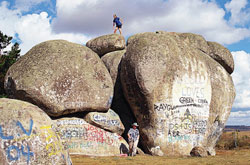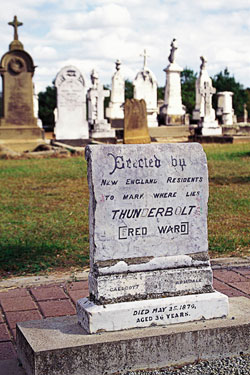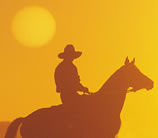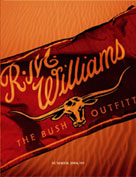OUTBACK HISTORY
 The Thunderbolt enigma
The Thunderbolt enigma
Though bushranger Fred Ward’s last stand was more than 130 years ago, his life – and death – is still surrounded by mystery.
Story Kirsty McKenzie
Photos Ken Brass
A cast having been previously taken, and a last glance given to at least a hundred anxious sightseers who have been waiting for the purpose, the coffin was fastened down, conveyed to the Uralla graveyard, and Thunderbolt’s body consigned to the grave which had been so long yawning for him. Without a prayer, without a tear in the presence of not more than a dozen witnesses, the earth closed over and shut out from earthly view one who, had his intellect and natural capabilities been turned to good instead of evil, might at the present time have been a useful and worthy member of society, instead of leaving a memory covered with disgrace, and his body the tenant of a felon’s grave …”
 So reported the Armidale Telegraph on the burial of Frederick Wordsworth Ward
in May 1870. And that should have ended the final chapter in the life of
the New South Wales bushranger known as Captain Thunderbolt. But such is
the Australian love of the underdog, not to mention a good yarn, that tales
of this antihero live on and have been embellished by the years. As is often
the case with colourful figures, it’s sometimes difficult to ascertain the
truth surrounding Ward’s life and demise, with supporters from all sides
arguing that theirs are he ‘real’ facts.
So reported the Armidale Telegraph on the burial of Frederick Wordsworth Ward
in May 1870. And that should have ended the final chapter in the life of
the New South Wales bushranger known as Captain Thunderbolt. But such is
the Australian love of the underdog, not to mention a good yarn, that tales
of this antihero live on and have been embellished by the years. As is often
the case with colourful figures, it’s sometimes difficult to ascertain the
truth surrounding Ward’s life and demise, with supporters from all sides
arguing that theirs are he ‘real’ facts.
Ward began his working career as a horsebreaker, which earned him great respect and the knowledge and judgement of good horses that probably led to his undoing. In the mid-1850s, when Ward was aged about 20, he and his nephew James Garbutt were found guilty of being in possession of horses which belonged to his employer on Tocal Station, near Paterson in the Hunter. Ward was sentenced to 10 years in Sydney’s infamous Cockatoo Island prison.
Full story OUTBACK Issue 36 Aug/Sept 2004


